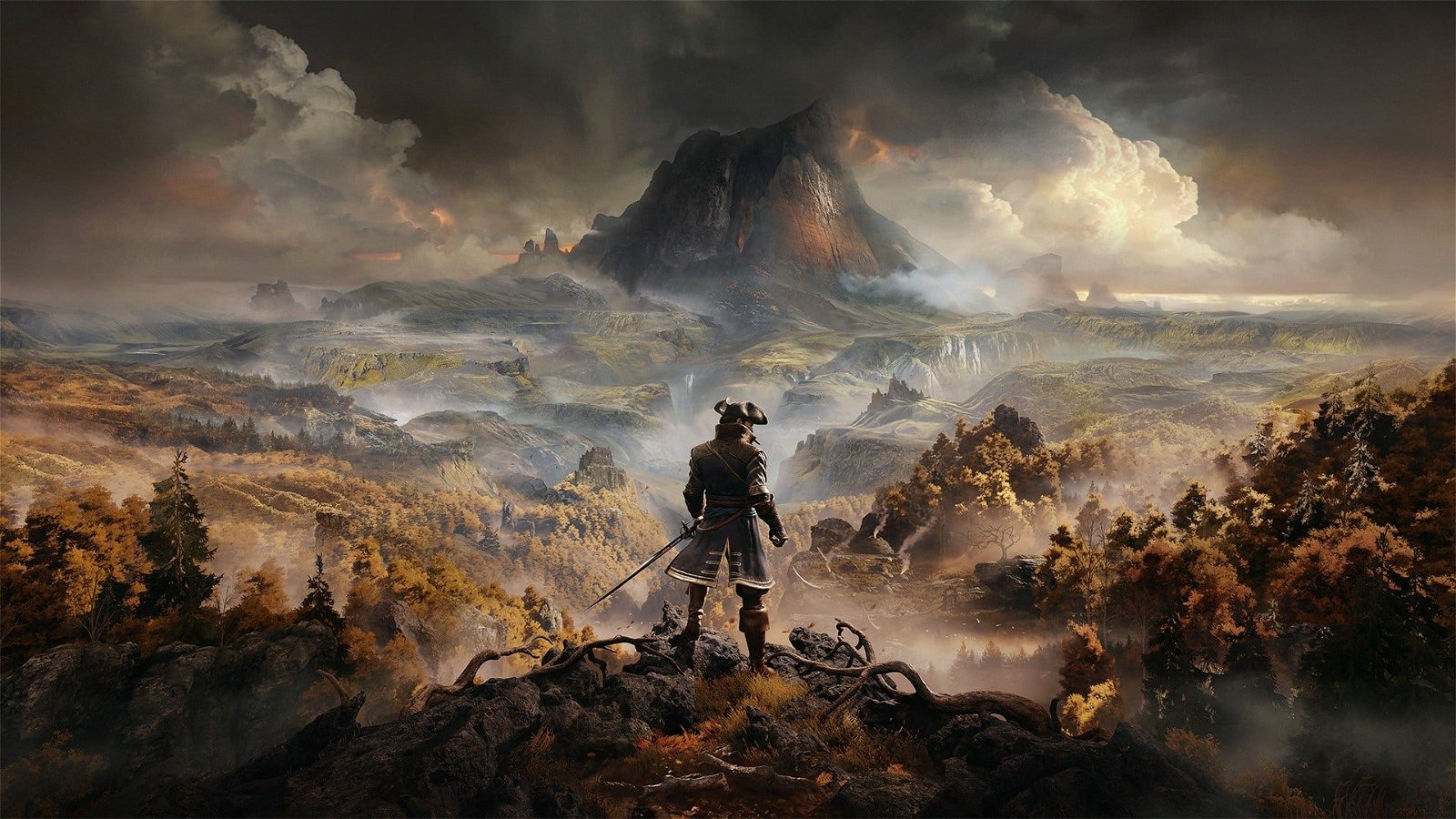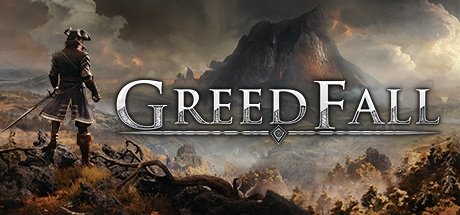In the roughly 40 hours of its campaign, I was constantly surprised at the scope of everything Greedfall had to show me in its depiction of a fantastical new world story. It’s big and it’s messy, but Greedfall has an ambition to character and worldbuilding rivaling that of early entries into Bioware franchises. Not every character and faction grabbed my interest in the way those games have, but that it manages to evoke the same feelings those games have given me speaks to the ways in which Greedfall excels.
Set on the island of Teer Fradee, Greedfall follows the life of diplomat De Sardet, who has traveled to the island with their cousin in search of a cure for a fatal disease affecting their people. In settling in this new world, different factions find themselves at odds with both other settling groups and the natives who have an intimate knowledge of the island and all its mysteries. De Sardet’s mission is to both find a cure as well as navigate the political landscape of the island. Whether it’s pushing against the religious radicals of Théléme, confronting the ethics of the scientists in the Bridge Alliance, or reckoning with the histories of the sea-faring Nauts, understanding the beliefs and goals of each faction is the key to success on Teer Fradee, but with every quest and choice that I came across I found myself caught between what was politically convenient and what actually sat well with me.
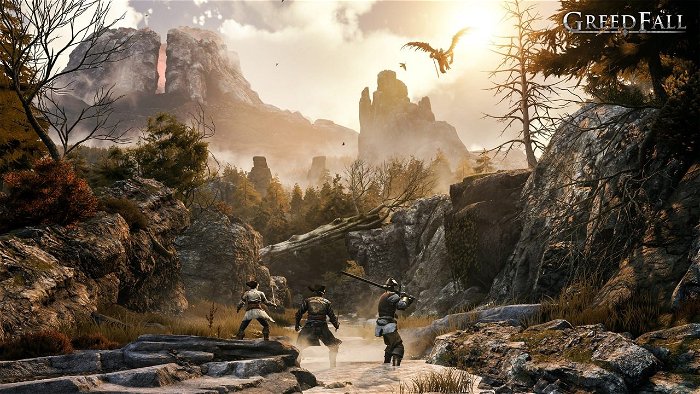
By the time I reached the end game of Greedfall, I’d done a lot to alienate many factions in pursuit of what I thought was right. I was often uncomfortable with the amount of influence I had on the island, but more often than not I used it to help the natives push back against the various groups that came to their home to pillage and convert. In spite of all the power I supposedly had as De Sardet, I often felt like I was working within the confines of damage already done by the colonizers. I could not undo all the pain these people had caused the natives, but I could do everything in my power to push back against any further influence.
On that same note, one of Greedfall’slater decisions allowed me more say in the natives’ lives than I felt De Sardet should have ever been given, even with some late game reveals that place them in a greater position of authority. I never felt it was my place to nudge the future of an entire people for my own gain as it was positioned, but nevertheless there was no way to avoid it.
All of this is to say that Greedfall is messy in its themes and the directions it takes you. The colonial narrative comes with a lot of baggage that, if not handled with care, can come off uncritical of the histories of similar events in real history. Greedfall earnestly tries, and at a lot of time succeeds in confronting the truth of its own story, but it’s not without its pitfalls.
Much of that nuance, as messy as it might be, comes from the game’s altogether excellent quest design. Greedfall almost never falls into the structure of fetch quests. With each mission, whether on the main path, a favour for a party member, or a faction-spanning side mission, the levels of involvement gave each of them a weight that kept me from bouncing off of them to do something else and instilled an investment in me for every plotline, even relating to factions I didn’t care for like the religious zealots of Théléme. I was consistently surprised by the breadth of every character I came in contact with and every conflict I was called upon to help resolve. Much of Greedfall’sbest stories are found in its smaller moments, and a lot of them are going to stick with me.
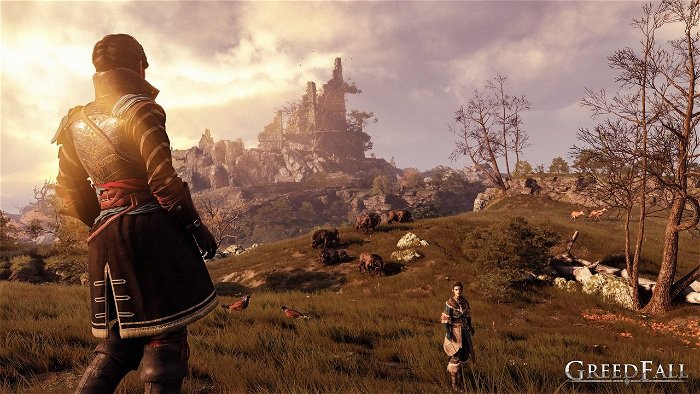
Unfortunately, seeing these quests through also resulted in some of my most pronounced problems with Greedfall, primarily around some bugs and glitches, but also the quality of life issues that spring up as you try to navigate its vast world. On more than one occasion I had waypoints misdirecting me from quest progression or a mission item not being recognized as in my inventory, requiring me to reload old saves just to try again. I shudder to think of what might’ve happened if I didn’t have saves a few minutes or even an hour before these issues arose. For what it’s worth, I had these issues on PlayStation 4, but through speaking with some others who played the game on PC, these issues don’t seem as prevalent there.
But even beyond the bugs, Greedfall has a few design choices in place that made navigating the world more irksome. Fast travel can only be accessed from one of its designated points, rather than being available at any given time, which meant I spent a lot of my playtime backtracking and running through the open worlds in search of a campfire to speed up my travel time. Certain areas and solutions are gated by in-game talents, such as proficiency in science, charisma, or vigour. On the one hand, this can give you a sense of progression and personalization in your character’s skill set, but on the other it can make the mere act of progression in some cases needlessly challenging if you haven’t invested in certain skills. This is sometimes alleviated by bonuses given by strengthening friendships with your party members, but each bonus is only accessible if that character is in your party at the moment, which on a few occasions had me considering leaving a mission area to change my party just to come back and do something as simple as opening a door or crafting a potion.
These issues seem small at first glance, but put them together and I found Greedfall felt like it was wasting small bits of my time in rapid succession. Which was frustrating when, instead of running between fast travel point to fast travel point, I would have rather been doing anything else Greedfall does well, like its combat.
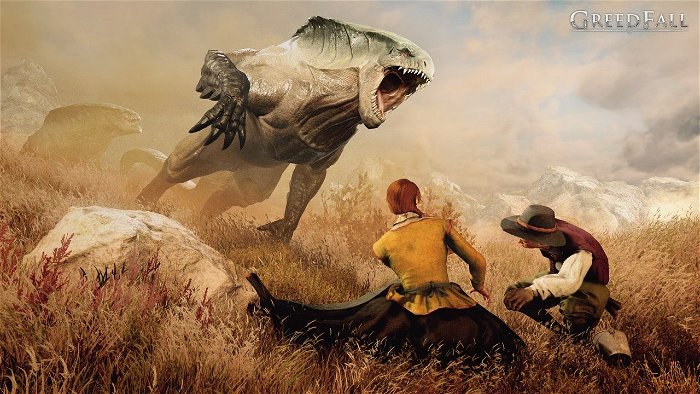
My version of De Sardet was a magic user, and playing as him was one of my favourite experiences as a mage in recent memory. The fast-paced combat of Greedfall is more action-oriented than games like Dragon Age and more reactive than something like Fable. There’s more twitch sensibilities here that still felt intact when I was playing a class that in most other games in the genre typically lends itself to something strategic and slow-paced. In general, there are fewer options when it comes to ability sets, and people looking for something that can result in dramatically different builds based on classes will likely be disappointed with what Greedfall offers in character progression, but for me I was happy to have a handful of abilities that cultivated into a defined and sensible playstyle, rather than something with a huge array of options.
I like Greedfall a great deal. Even now I’m thinking back fondly on the people I met and stories I saw unfold on Teer Fradee through the eyes of De Sardet. For all its imperfection, it isn’t afraid to take chances and play around with a format of RPG that feels like it’s dying off, or at least has gone dormant for the time being. In carrying that spirit, Greedfall reminded me there’s still life to be breathed into the choice-driven RPG, and for that I’m grateful that it’s given me something other studios don’t seem to strive for any longer.
